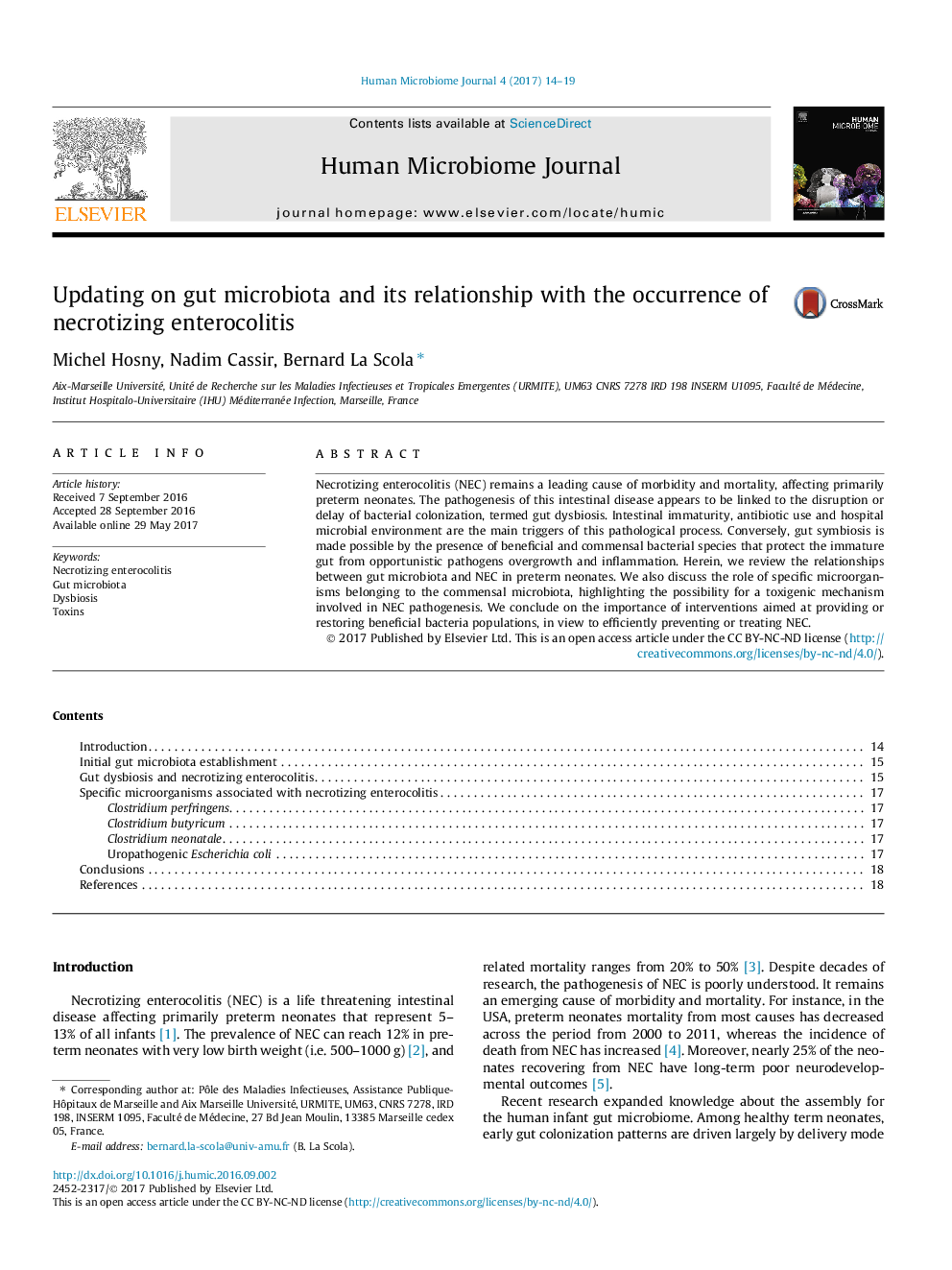| Article ID | Journal | Published Year | Pages | File Type |
|---|---|---|---|---|
| 5672156 | Human Microbiome Journal | 2017 | 6 Pages |
Necrotizing enterocolitis (NEC) remains a leading cause of morbidity and mortality, affecting primarily preterm neonates. The pathogenesis of this intestinal disease appears to be linked to the disruption or delay of bacterial colonization, termed gut dysbiosis. Intestinal immaturity, antibiotic use and hospital microbial environment are the main triggers of this pathological process. Conversely, gut symbiosis is made possible by the presence of beneficial and commensal bacterial species that protect the immature gut from opportunistic pathogens overgrowth and inflammation. Herein, we review the relationships between gut microbiota and NEC in preterm neonates. We also discuss the role of specific microorganisms belonging to the commensal microbiota, highlighting the possibility for a toxigenic mechanism involved in NEC pathogenesis. We conclude on the importance of interventions aimed at providing or restoring beneficial bacteria populations, in view to efficiently preventing or treating NEC.
